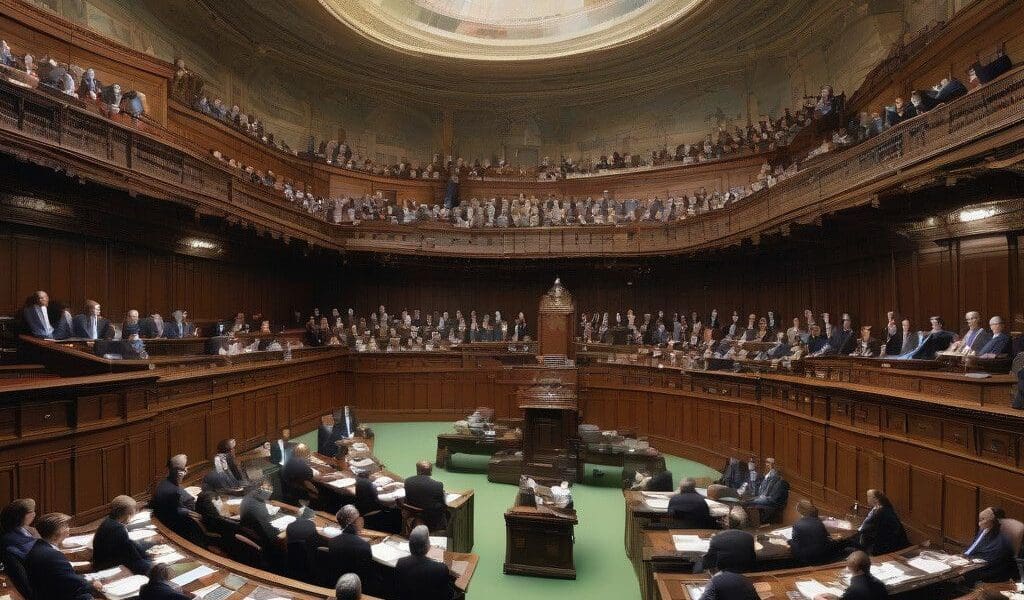UK Introduces New Bill to Classify Digital Assets as Property
The UK government has set in motion a crucial legislative shift with the introduction of a Property Bill aimed at defining the legal standing of digital assets, including cryptocurrencies, non-fungible tokens (NFTs), and carbon credits. By establishing an additional property category under UK law, this bill recognizes digital assets as ‘things,’ providing a structured legal framework essential for managing these assets, especially in situations such as divorce settlements.
This initiative, championed by Labour MP and Minister of State Heidi Alexander, underscores the government’s commitment to ensuring that the legal system evolves in tandem with advancements in technology. The necessity of such a bill is highlighted in a 2023 report produced by the Ministry of Justice, which emphasizes the unique characteristics of digital assets that necessitate distinct legal recognition under personal property law.
One of the primary goals of the proposed legislation is to enhance protection for digital asset owners and businesses against the rising tide of fraud and scams. As digital assets gain traction, the dangers associated with them have become more pronounced. By offering clearer guidance to judges in complex property disputes involving digital holdings, the bill aims to foster a more secure environment for both individuals and companies engaged in the digital economy.
The trend of governments reevaluating their stance on digital assets is not isolated to the UK; it reflects a broader global movement. Similar discussions are currently unfolding in the United States, particularly as the 2024 elections approach. This indicates a growing recognition among lawmakers worldwide of the need to integrate digital assets into existing legal frameworks.
In practice, this new framework will allow for greater clarity and security for transactions involving digital assets. For instance, during a divorce settlement, if one partner holds significant cryptocurrency or valuable NFTs, the valuation and distribution of these assets can proceed more straightforwardly. Without well-defined property statuses, disputes may lead to convoluted legal battles, which could be detrimental to all parties involved.
Moreover, the bill’s timing aligns well with the Labour government’s recent electoral victory, further indicating the political will to tackle issues related to blockchain and digital asset regulation seriously. This alignment may provide not just legal safeguards but also bolster consumer and investor confidence in the digital market sector.
This legislative effort is reflective of essential changes occurring in many jurisdictions globally. In the United States, for example, there are increasing calls for regulatory clarity around digital currencies and their implications for financial security and consumer protection. By taking proactive steps to define digital assets legally, the UK positions itself as a leader in digital law, potentially attracting international businesses and innovators looking for secure operational environments.
The anticipated impact of this bill extends beyond individual ownership; it poses significant implications for the commercial landscape as well. Businesses dealing in digital assets will benefit from clearer regulatory parameters which could enhance their operational strategies. Startups and entrepreneurs in the tech space can proceed with business plans without the looming uncertainty that typically accompanies the legal treatment of new technologies.
In conclusion, the UK’s introduction of the Property Bill signifies a landmark moment in the recognition and regulation of digital assets. As this legislation progresses, businesses and individuals alike are poised to gain from a clarified legal framework that not only protects their interests but also encourages technological advancement and economic growth.
As discussions around digital asset legislation rise on the agenda in various economies, stakeholders in the digital and legal landscapes should remain alert to the implications of these developments. The preparation for the changes this bill will bring is essential for adapting to a constantly shifting environment characterized by advancements in technology.








